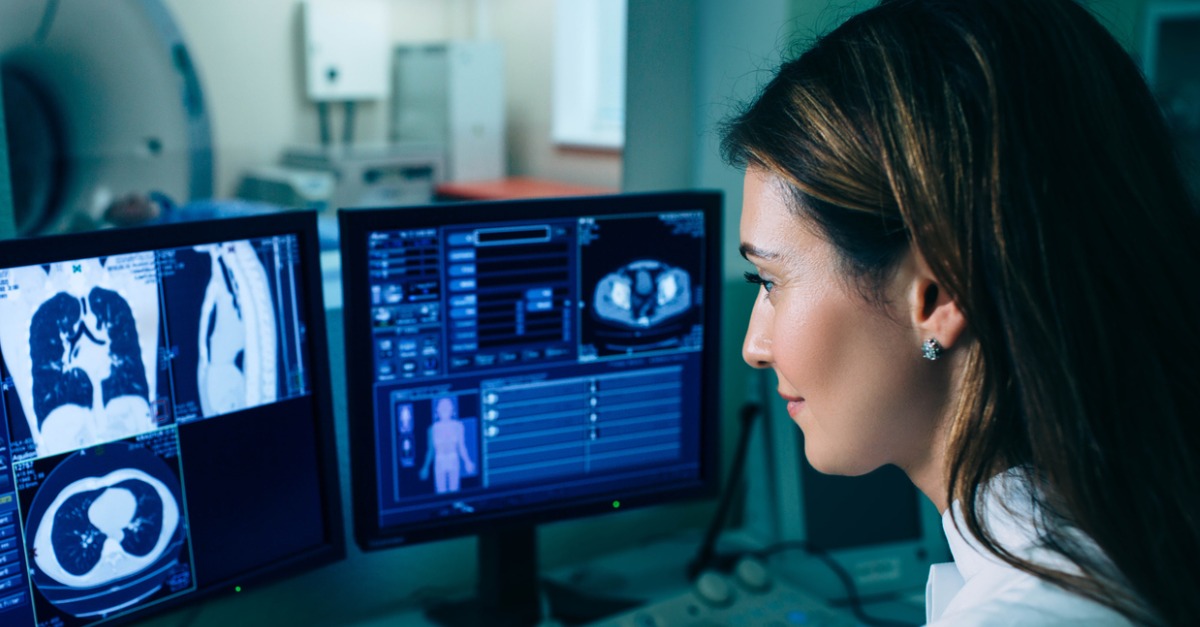If your doctor has prescribed a CT scan to have your lungs checked, you may be wondering what the findings could reveal. While computed tomography (CT) scans can be used to look for abnormalities that may contribute to specific symptoms, they can also serve as a screening tool to aid in the early detection of lung cancer.
According to the U.S. Preventive Services Task Force, annual CT lung cancer screenings are recommended for people who:
- Still currently smoke
- Have quit within the past 15 years
- Have a 20 pack per year (or more) smoking history
- Are between the ages of 50 and 80
Whether you’re already due for a preventive screening, or a doctor has recommended a new scan to check for abnormalities, here’s what you should know about the possible findings from a lung scan.
What Can a CT Lung Scan Detect?
Pulmonary Nodules
Lung or pulmonary nodules are small, abnormal masses often discovered during CT scans. Oftentimes, nodules are not cancerous, but your doctor may recommend future scans to determine whether the mass is growing. If that is the case, further testing may be required to detect the presence of cancer or an infection. Nodules can often appear long before other lung cancer symptoms, making their detection an important tool for early treatment.
Tumors
CT scans can depict finer details in the lungs than other types of imaging, such as X-rays. When tumors appear, doctors may use diagnostic tools such as biopsies to further check for cancer.
There are two types of lung cancer: non-small cell lung cancer, which accounts for up to 85% of all lung cancers, and small cell lung cancer, a less common but typically more aggressive form.
Keep in mind that not all tumors found in the lung are cancerous. There are also benign lung tumors, such as a hamartoma which are composed of abnormal but noncancerous cells.
Signs of COPD
In addition to lung cancer, doctors may use CT scans to confirm a COPD diagnosis or monitor how the condition may have progressed. CT images can uncover signs of emphysema, one type of COPD, in more detail and at earlier stages than X-rays by showing signs such as enlarged arteries and air pockets.
Complications of Pneumonia
While X-ray exams are often used to detect white spots in the lungs that identify pneumonia, CT scans may be used as a follow-up to show the airway in better detail and uncover signs of possible complications, including abscesses.
Interested in undergoing a CT scan? Consult with your provider first, as a referral is needed to receive this type of exam. While preparing for a CT scan may produce anxiety, Cardinal Points Imaging is here to make your imaging appointment as stress-free as possible. Our centers offer flexible appointment options, and our staff is here to answer any questions you may have during your visit. Request an appointment online or by calling (919) 877-5400.

